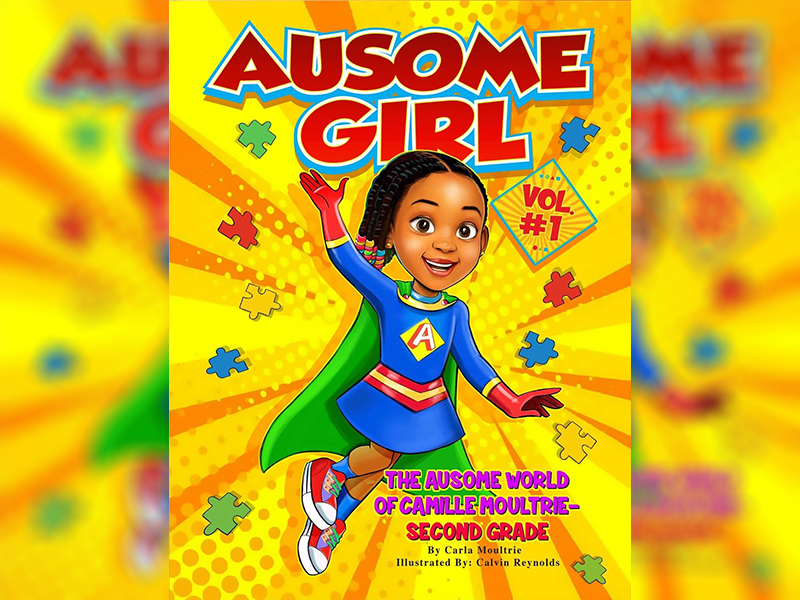Moms might look at Carla Moultrie — a pastor’s wife working a full-time corporate gig, going back to school for her MBA and raising a daughter with special needs — and see a superhero.
But for Moultrie, her 10-year-old daughter Camille is the one wearing the cape.
In 2022, Moultrie turned her daughter Camille, who is on the autism spectrum, into a full-fledged superhero in Ausome Girl, a children’s book about the strengths and needs of people with autism and how to support them.
“I wrote it for my little cousins,” said Moultrie, a UGA Professional MBA student who graduates this May. “I saw that they didn’t understand how to engage with Camille. It was innocent, they weren’t being mean, they just didn’t know how to engage her. And other parents would ask, ‘Can we do this or how does she feel about this?’ No one knew what to say or how to engage with her. So I saw it as an opportunity to help people learn.”

Before writing Ausome Girl, Moultrie’s review of books on the subject revealed they were too clinical or didn’t resonate with her or Camille’s experiences. She started writing Ausome Girl in 2020 after realizing she wasn’t finding the book she needed on the shelves.
It turns out people needed help talking to their friends and family about neurodiversity. Moultrie’s book is in high demand nationally from schools, churches and community groups looking to teach people about neurodiversity. The book has sold over 5,000 copies nationwide.
Since 2022, Moultrie has published a coloring and activity book building on the lessons in Ausome Girl. Both books have been translated into Spanish, and she has a second book featuring characters with Down Syndrome and ADHD coming out later this year.
“I feel like what we’re doing is normalizing children with special needs,” she said. “The disability space for children is a space we don’t talk about. When I was growing up, we knew there were kids who were different, but we didn’t get a chance to interact with them. We’re seeing more inclusion now, but kids still have questions. They don’t know what to say, how to say it, or what’s appropriate.”
While Moultrie’s book audience is mainly elementary schoolers, her books inadvertently helped her build a community of parents and caregivers on social media. By detailing the joys and struggles of being a mom of a special needs child, she’s allowed other parents to share their stories and ask each other about resources.
The experience of becoming an advocate for her daughter led her to become an advocate for special needs families of all types, establishing a special needs ministry at her husband’s church and becoming a one-woman campaign for understanding and inclusion. She wants to be the person that she needed to talk to after her daughter’s diagnosis.
“When I’m talking about autism and autism advocacy, I can talk about it all day long,” Moultrie said. “It is me living my passion. If I didn’t have a child with autism, I probably never would think of it. But because my daughter was diagnosed seven years ago, this is something that I live, eat and sleep, and my goal is to help other children and families.”
While she has a great job as a contract manager for a Fortune 500 company with a supportive boss, she can see a future where she’s a full-time autism advocate. She was drawn to the Terry College of Business PMBA program because she could concentrate her studies around entrepreneurship.
She’s hoping her degree makes her a more valuable employee and allows her to start a community space and activity center for families with special needs in South Fulton County. North Georgia has great programs, but it’s unrealistic to ask parents to drive their kids an hour and a half each way for summer day camp or therapy, she said.
“I would love to do something like that,” Moultrie said. “That type of service is not available right now in south Fulton County, and it’s such a need here in this community.”

